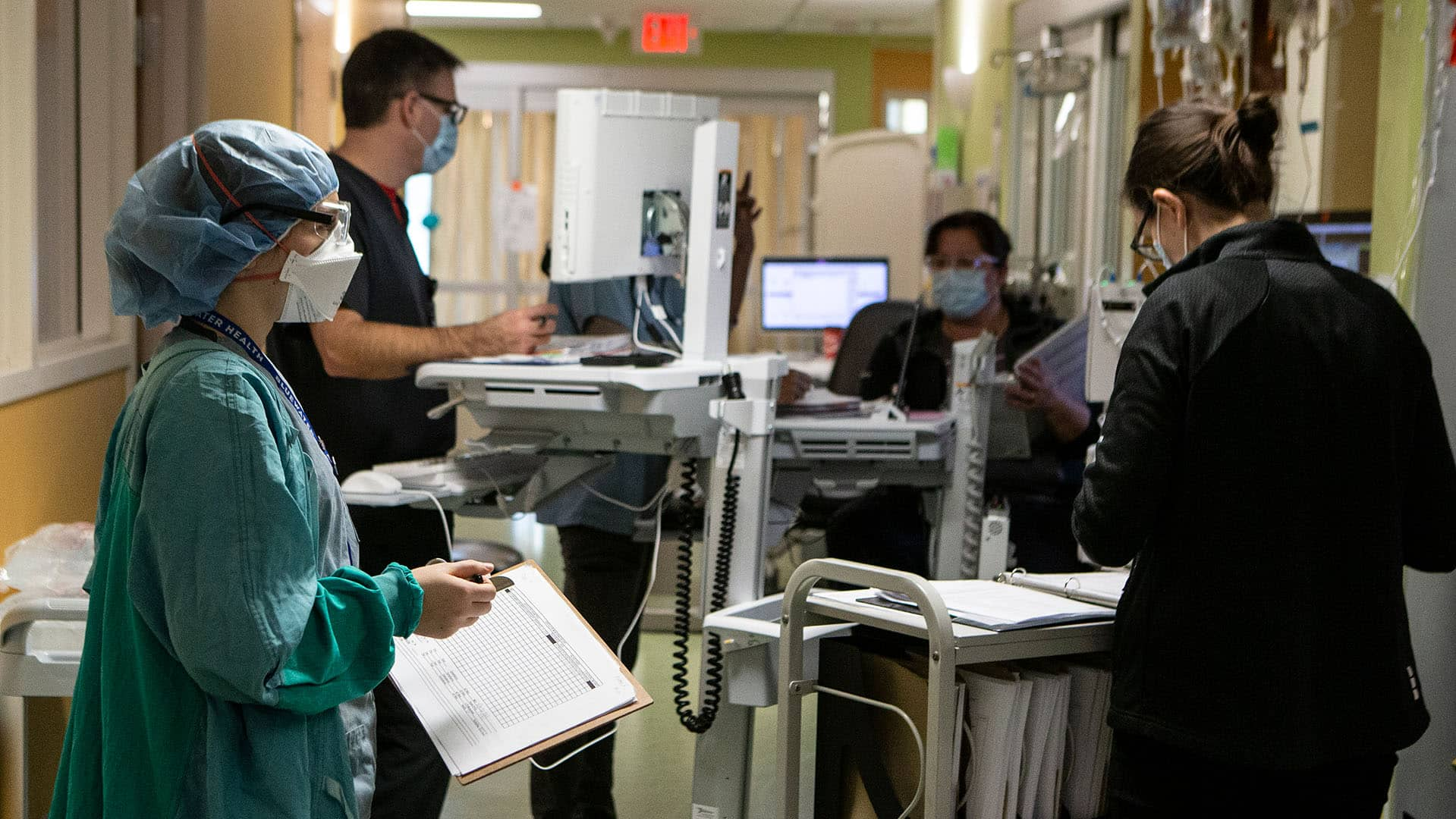The priority for any changes to Canada’s health-care system should be on securing long-term funding, rather than introducing new programs, B.C. Premier John Horgan said.
The priority for any changes to Canada’s health-care system should be on securing long-term funding, rather than introducing new programs, B.C. Premier John Horgan said.
“Would it be grand to have a national dental care plan? Absolutely,” Horgan said in an interview that aired Sunday on Rosemary Barton Live.
“But I think we need to start with first principles, and that is stable funding so that we can do the hip replacement, so we can have a human resource strategy for our primary care sector,” he told CBC chief political correspondent Rosemary Barton.
Canada is facing shortages of medical professionals across the country, Horgan said. “And we need to address that not by starting up a new national program, but focusing on stabilizing the national program,” he said. The federal Liberal government committed to a new dental care program in the recent federal budget.
WATCH | B.C. premier calls for long-term health-care funding:

Provinces disappointed budget skipped increase to health-care funding: B.C. premier
Rosemary Barton Live speaks with the chair of the Council of the Federation, B.C. Premier John Horgan, on what he says was missing from the federal budget — an increase to health transfers. Plus, the conversation explores affordable housing, and a sixth wave of COVID-19. 9:51
Horgan heads up the Council of the Federation, a grouping of Canada’s premiers. The provincial leaders have consistently called for increases to health transfers — money sent from the federal government to the provinces — citing increased costs over time and due to the COVID-19 pandemic.
The Liberal government has repeatedly said that discussions over changes to the health-care transfer would wait until after the COVID-19 pandemic is over — but with many restrictions lifted across the country, when exactly those talks will begin in unclear.
Asked about the transfer during a stop in Victoria on Monday, Prime Minister Justin Trudeau again promised there would be “significantly more money from the federal government” and cited increased transfers during the pandemic, including most recently a $2 billion commitment meant to alleviate surgery backlogs.
But the federal government has suggested that new health-care funding might come with strings attached, restricting how provinces might spend it.
“We’ve seen in the past that just more money into health-care, even from the federal governments, doesn’t necessarily lead to the right outcomes or better outcomes for Canadians,” Trudeau said.
Upcoming provincial elections a complication
The premiers have pushed back on the idea of one-off transfers, saying in a post-budget statement that they do not meet the long-term challenges facing the health-care system outside the context of the pandemic.
Horgan, who himself recently recovered from COVID-19, said the premiers did remain “optimistic” that ongoing discussions could secure a lasting deal.

But one factor he said “complicates our discussions” is upcoming provincial elections; Ontario is expected to hold an election on June 2, with Quebec’s expected on Oct. 3.
“But all of us are of one mind on this: whether we’re those who have elections behind us or those who have elections in the near term, that we need to get this done for for Canadians,” Horgan said.
Challenges on housing, COVID-19
Horgan noted that municipal elections this year also complicate the work of accelerating progress on the housing crisis, which is perhaps most severe in Vancouver.
He argued that collaboration between municipalities, the provincial governments and the federal government was important to push the agenda forward. Deputy Prime Minister Chrystia Freeland and Housing Minister Ahmed Hussen have repeatedly emphasized that municipalities must take steps to speed up their processes when it comes to affordable housing.
“I’m hopeful we can make real progress on housing because we have a federal partner who now, at least after I would suggest, a decade or so or maybe even two decades off the field is now getting back in the game,” Horgan said.
Despite his own brush with COVID-19, Horgan did not express alarm about rising metrics in some parts of the country, noting that hospitalizations and admissions to intensive care units were stable in B.C.
“Where we are at COVID right now is steady as we go. Be careful, be kind to each other and wear a mask if you’re uncomfortable — I know I’m going to,” Horgan said.
You can watch full episodes of Rosemary Barton Live on CBC Gem, the CBC’s streaming service.

